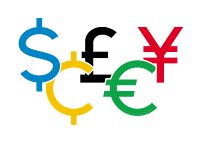The IOC has taken actions to control the power of advertisers and over-commercialization of the Olympics by introducing Rule 40. Most companies choose to advertise the greatest players in the game, which attract more consumers for their products to improve their bottom lines. So, once the games start, Rule 40 jumps into play and disables any company to use an athlete to their advantage for profit purposes.
Smart, huh?
Bylaw 3 of the rule states that:
"Except as permitted by the IOC Executive Board, no competitor, team official or other team personnel who participates in the Olympic Games may allow his person, name, picture or sports performances to be used for advertising purposes during the Olympic Games.”
However, sponsorships such as Coke and Visa are classified as “official partners”, and do not have to follow the Rule 40 manual because they are so important to the games. This initiative, according to the Olympic Committee is “to preserve the unique nature of the Olympic games by preventing over-commercialization.” Hmm.
You could say Rule 40 eliminates all of the “fluff” by companies during the Olympics games such as a small apparel brand promoting their products by associating themselves with winners throughout the game. It just doesn’t seem right but at the same time, some of these small businesses are the reason why most Olympic athletes make it to the games.
The blackout period that exists during the month of the Olympics has caused issues among businesses and even large corporations that sponsor athletes. Athletes were outraged at the 2012 London Olympics when they were shocked they couldn’t even post a thank you shoutout to their sponsors on Facebook. The uproar that was caused by businesses such as Oiselle (running apparel for women), and New Balance made the IOC rethink Rule 40 for the Rio games to eliminate dissatisfaction. Advertsing campaigns could not include and words dealing with “Rio”, “summer”, “gold”, “sponsors”, or even “2016”. The messages could not contain good luck or supportive messages, and must run from the end of March until the end of the games.
Gold medalist Dawn Harper-Nelson silently speaks out against Rule 40.
(London Olympics, 2012)
Rio was just a starting point for actions to be taken by the IOC because of the disruption from sponsors and athletes. Rule 40 sounds like it prevents over-commercialization of the games, but how can the businesses that got the athletes to where they are be silent through this? Is there another way the IOC could regulate commercialization rather than cutting off the underdogs?
https://www.pastemagazine.com/articles/2016/07/rule-40-an-olympics-advertising-explainer.html
http://www.oiselle.com/blog/birds-eye-view-rule-40-explained
http://www.npr.org/2016/08/20/490738761/rule-40-how-the-brands-blackout-impacts-olympic-athletes
https://www.pastemagazine.com/articles/2016/07/rule-40-an-olympics-advertising-explainer.html
http://www.oiselle.com/blog/birds-eye-view-rule-40-explained
http://www.npr.org/2016/08/20/490738761/rule-40-how-the-brands-blackout-impacts-olympic-athletes






